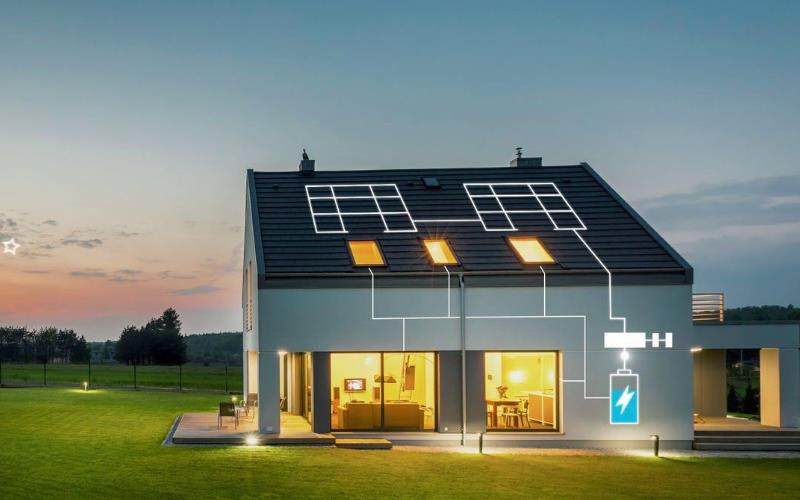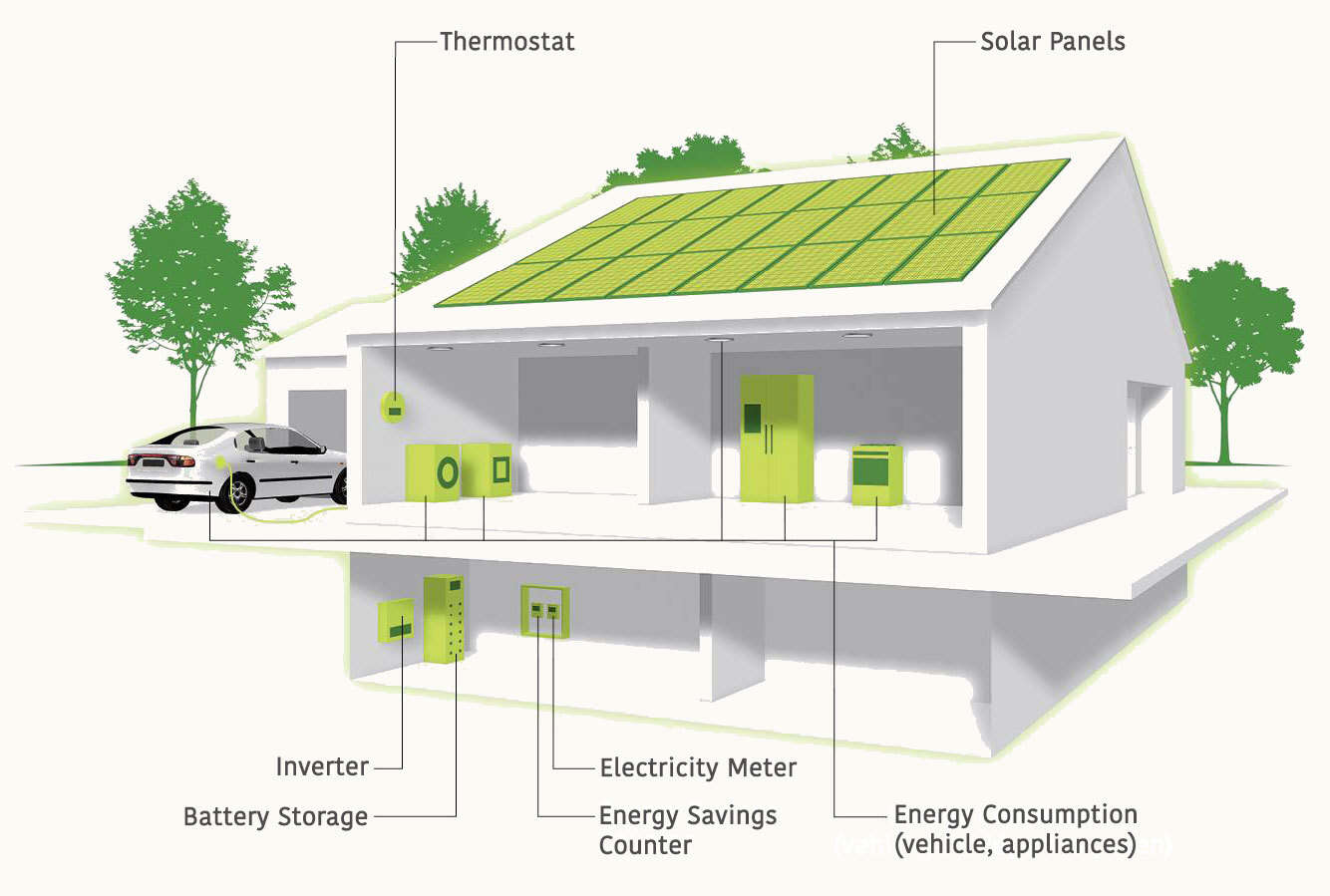

Home energy storage consists of a battery that allows you to store surplus electricity for later consumption, and when combined with solar power generated by your photovoltaic system, the batteries allow you to store energy generated during the day for use around the clock. Since battery energy storage systems are capable of optimizing the use of electricity, they ensure the most effective operation of your home solar power system. At the same time, they also guarantee continuity in case of temporary disruptions in the power supply, with extremely low response times.
Home energy storage further supports energy self-consumption: the surplus energy produced during the daytime from a renewable source can be stored locally to use at a later time, thus reducing the degree of dependency on the electricity grid. An energy storage battery therefore makes self-consumption more effective.
Home battery storage systems can be included with a solar power system at installation, or added to an already existing system. Since they make solar power more reliable, these storage systems are becoming increasingly widespread as the falling prices and environmental advantages of solar power make it become an increasingly common alternative to traditional power generation.

In general, solar power battery storage works like this: the solar panel is connected to a controller, which in turn is connected to the battery racks or banks where it is stored. When needed, the current from the battery must be passed through a small inverter, which transforms it from alternating current (AC) to direct current (DC), or vice versa. Then the current passes through a meter and is supplied to your chosen wall sockets.
6-20 个字符(仅限字母加数字)
密码不一致